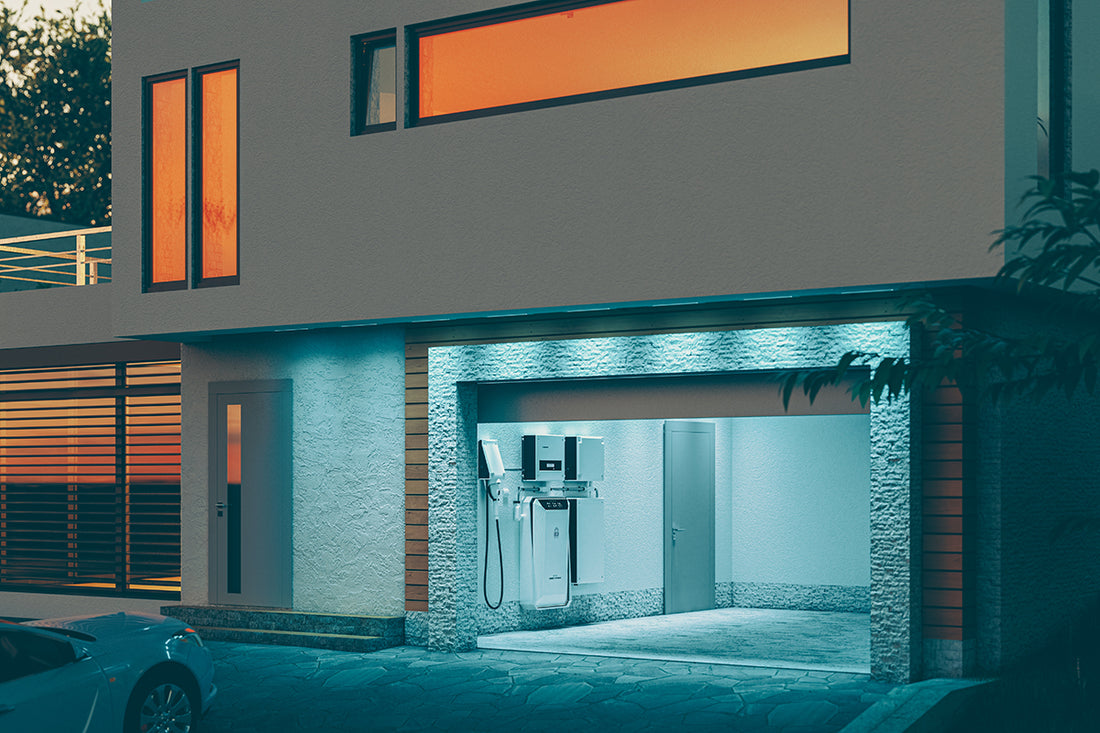
The Rise of Smart Homes: Integrating Energy Storage Systems for a Sustainable Future
Share
The concept of smart homes has evolved rapidly over the past decade, driven by advancements in technology and the growing need for sustainable living. At the heart of this evolution is the integration of energy storage systems, which play a crucial role in improving energy efficiency and reducing environmental impact. In this blog post, we'll explore how energy storage systems are becoming an integral part of smart homes, contributing to a more sustainable future.
What is a Smart Home?
A smart home is a residence equipped with advanced automation systems that allow homeowners to control various aspects of their living environment, such as lighting, heating, security, and entertainment, through connected devices. These systems can be managed remotely via smartphones, tablets, or voice-controlled assistants, offering convenience, security, and energy efficiency.
As the popularity of smart homes continues to grow, so does the integration of energy management solutions, including energy storage systems. These systems not only enhance the functionality of smart homes but also play a pivotal role in promoting sustainability.
The Role of Energy Storage Systems in Smart Homes
Energy storage systems, such as home batteries, are designed to store excess energy generated by renewable sources like solar panels. This stored energy can be used during periods of high demand or when renewable generation is low, such as at night or on cloudy days. The integration of energy storage into smart homes offers several key benefits:
1. Enhanced Energy Efficiency
One of the primary benefits of integrating energy storage systems into smart homes is improved energy efficiency. By storing excess energy produced by solar panels during the day, homeowners can use this energy when it’s needed most, reducing reliance on the grid and minimizing energy waste.
Smart homes equipped with energy storage can optimize energy usage by automatically shifting power consumption to times when electricity is cheaper or when renewable energy is available. This not only reduces energy costs but also contributes to a more balanced and efficient energy grid.
2. Increased Energy Independence
Energy storage systems provide smart homes with greater energy independence. By storing solar energy, homeowners can reduce their dependence on the grid, especially during peak demand periods or in the event of power outages. This independence is particularly valuable in areas prone to blackouts or where grid reliability is a concern.
With energy storage, smart homes can continue to operate essential systems, such as lighting, heating, and security, even when the grid is down, ensuring comfort and safety for residents.
3. Supporting Renewable Energy Integration
Smart homes are increasingly turning to renewable energy sources, such as solar and wind, to reduce their carbon footprint. However, the intermittent nature of these energy sources can make it challenging to rely on them exclusively. Energy storage systems bridge this gap by storing excess renewable energy for later use, ensuring a steady and reliable energy supply.
By integrating energy storage, smart homes can maximize the use of renewable energy, reduce reliance on fossil fuels, and contribute to a more sustainable energy system.
4. Cost Savings
While the initial investment in energy storage systems can be significant, the long-term cost savings are substantial. Homeowners can take advantage of lower energy rates by storing energy during off-peak hours and using it during peak times. Additionally, in regions where net metering is available, excess energy stored in batteries can be sold back to the grid, further offsetting costs.
As technology advances and economies of scale reduce the cost of energy storage systems, the financial benefits of integrating these systems into smart homes will become even more attractive.
5. Future-Proofing Homes
The integration of energy storage systems future-proofs smart homes, making them more resilient and adaptable to changing energy landscapes. As energy grids evolve and renewable energy becomes more prevalent, having an energy storage system in place will allow homeowners to take full advantage of these advancements.
Additionally, as regulations and incentives for renewable energy and energy efficiency continue to expand, homes with integrated energy storage systems will be better positioned to benefit from these policies.
The Environmental Impact of Energy Storage in Smart Homes
Beyond the financial and operational benefits, the integration of energy storage systems in smart homes has significant environmental advantages. By maximizing the use of renewable energy and reducing reliance on fossil fuels, these systems help lower greenhouse gas emissions and combat climate change.
Furthermore, energy storage systems contribute to a more resilient and sustainable energy grid. By storing excess energy and reducing peak demand, these systems help smooth out fluctuations in energy supply and demand, reducing the need for fossil fuel-based backup power plants.
As more homes adopt energy storage systems, the cumulative impact on the environment will be profound, leading to cleaner air, reduced carbon emissions, and a more sustainable future for all.
Conclusion
The rise of smart homes is transforming the way we live, and energy storage systems are playing a critical role in this transformation. By integrating energy storage into smart homes, homeowners can enhance energy efficiency, increase energy independence, support renewable energy, and save on costs—all while contributing to a more sustainable and resilient energy future.
At MasonPower, we are committed to providing cutting-edge energy storage solutions that meet the needs of smart homeowners. Our advanced energy storage systems are designed to seamlessly integrate with smart home technologies, helping you create a more efficient, independent, and sustainable living environment. Contact us today to learn more about how our solutions can power your smart home for a brighter future.
